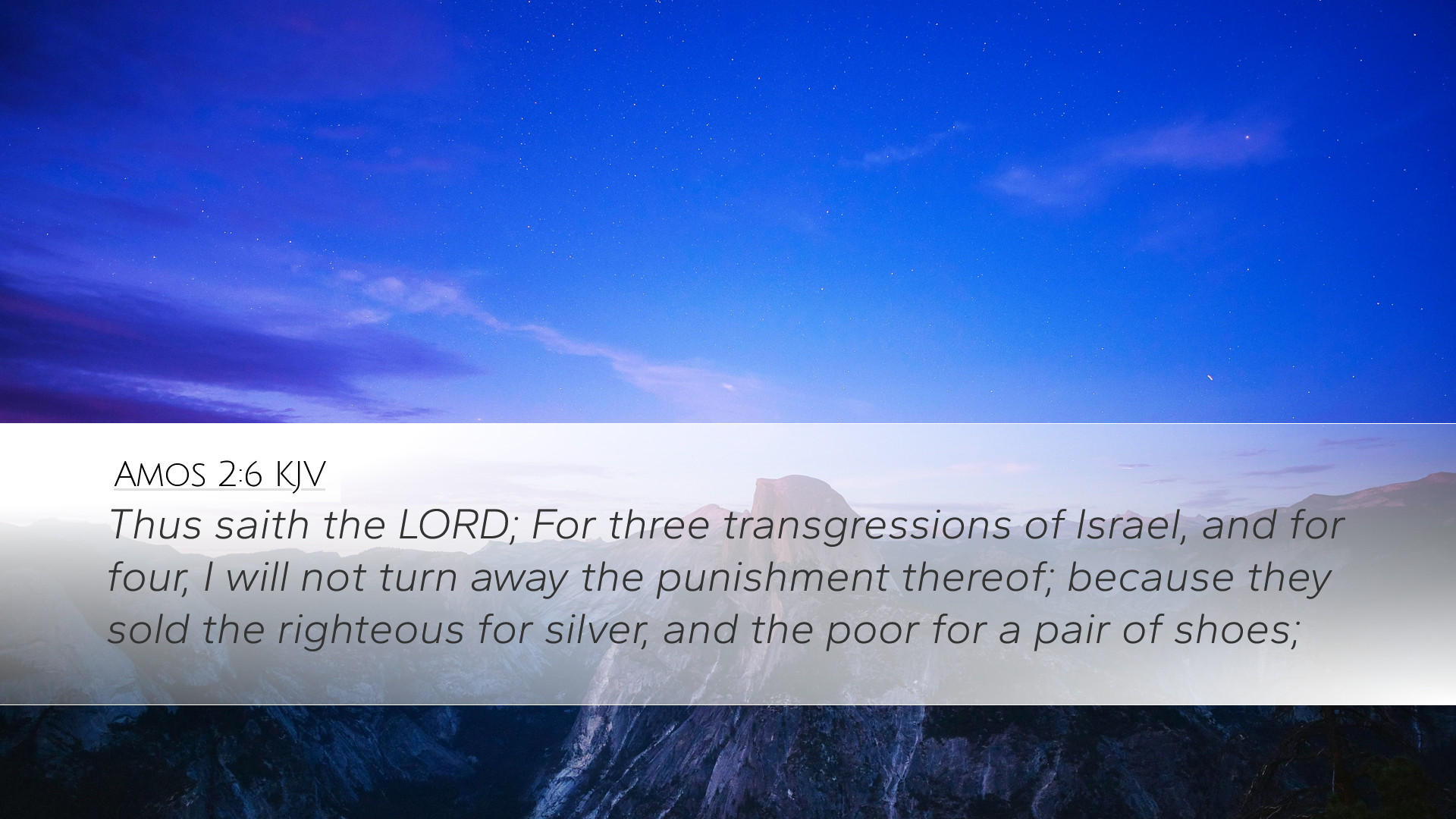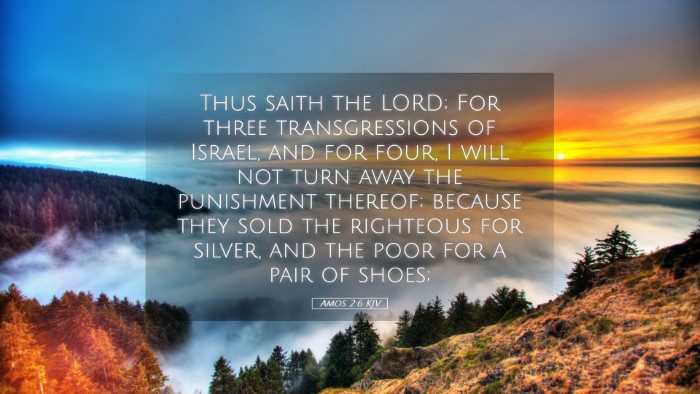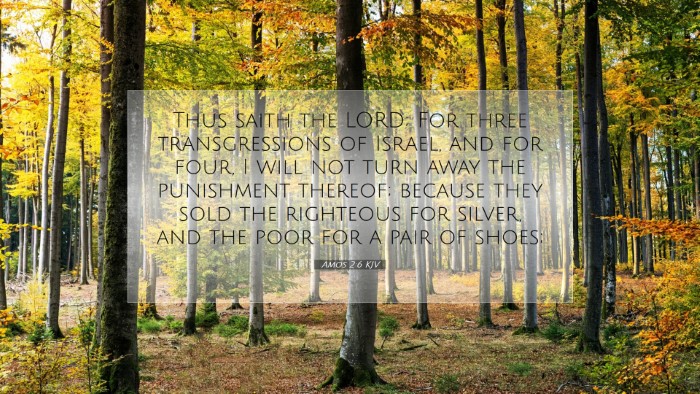Old Testament
Genesis Exodus Leviticus Numbers Deuteronomy Joshua Judges Ruth 1 Samuel 2 Samuel 1 Kings 2 Kings 1 Chronicles 2 Chronicles Ezra Nehemiah Esther Job Psalms Proverbs Ecclesiastes Song of Solomon Isaiah Jeremiah Lamentations Ezekiel Daniel Hosea Joel Amos Obadiah Jonah Micah Nahum Habakkuk Zephaniah Haggai Zechariah MalachiAmos 2:6
Amos 2:6 KJV
Thus saith the LORD; For three transgressions of Israel, and for four, I will not turn away the punishment thereof; because they sold the righteous for silver, and the poor for a pair of shoes;
Amos 2:6 Bible Commentary
Commentary on Amos 2:6
Amos 2:6 states, "Thus saith the Lord; For three transgressions of Israel, and for four, I will not turn away the punishment thereof; because they sold the righteous for silver, and the poor for a pair of shoes." This verse encapsulates God's judgment against Israel due to their grievous sins, bringing into focus His demand for justice and righteousness.
Contextual Overview
The Book of Amos is a prophetic text, attributed to the shepherd and sycamore tree cultivator, Amos. It addresses the socio-economic injustices of Israel during a period of relative prosperity but deep moral decay. The prophetic oracles within this book serve as a divine indictment against the people's failure to live righteously.
Exegesis of Amos 2:6
This verse stands as a definitive declaration of divine retribution. The phrase "For three transgressions... and for four" indicates not merely a quantitative measure but emphasizes the fullness and completeness of Israel's iniquity – a common literary device in Hebrew poetry to underscore the severity of sin.
The Divine Judgment
In his commentary, Matthew Henry highlights that God's judgment is not arbitrary but a response to the accumulated sins of the nation. The repeated phrase suggests a tipping point has been reached where grace gives way to justice.
Social Injustices
Albert Barnes elaborates on the particular sins being condemned, specifically the exploitation and oppression of the poor. The imagery of "selling the righteous for silver" reflects a disturbing moral decline where justice and integrity are forsaken for financial gain. This correlates with the teachings of Scripture regarding the treatment of the defenseless – a theme pervasive throughout biblical literature.
Theological Implications
God’s declaration in Amos 2:6 reveals profound theological truths about His nature and the expectations He has for His people:
- Holiness of God: The passage underscores God's absolute holiness and his intolerance of sin, particularly social injustice.
- Call for Justice: It highlights the recurrent biblical theme that righteousness involves active concern for social justice. To exploit the poor and vulnerable is a direct affront to God’s character.
- Judgment vs. Mercy: The tension between God's mercy and judgment is evident; His patience has limits, and unrepentant sin incurs the inevitable need for correction.
Historical Context and Implications
In the historical context of Amos's prophecy, Israel was enjoying prosperity and peace externally while internally, the rich were becoming wealthier at the expense of the poor. Adam Clarke notes that the social structure was rife with corruption and moral decay, indicating a disconnect between worship and ethical conduct.
This prophetic word serves as a reminder to modern readers – especially pastors and theologians – regarding the ethical implications of faith in action. Are we complicit in unjust systems, or are we agents of change in a world God calls us to serve faithfully?
Conclusion
Amos 2:6 is a vital verse that speaks not only to the historical context of ancient Israel but also to contemporary issues of social justice and moral integrity. For today’s church, it serves as a pivotal reminder of the responsibility that comes with the stewardship of God's message. Just as Amos confronted Israel with its failures, modern believers must confront the injustices within their own contexts.
As we reflect on this passage, may we be inspired to pursue justice, uphold righteousness, and advocate for the marginalized, emulating the true heart of God.


